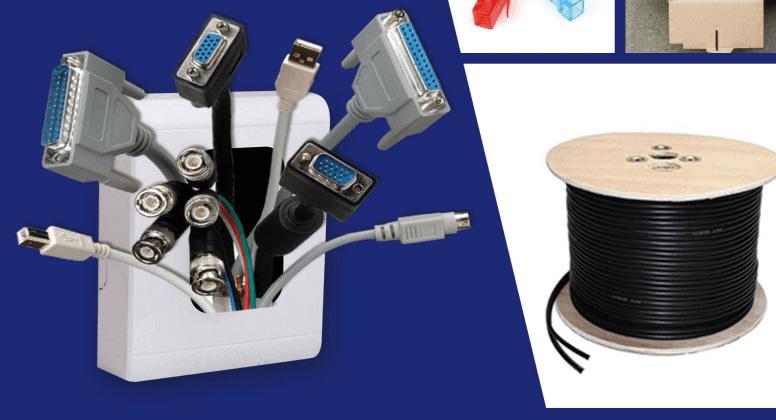
A Guide to Explore HDTV Cable
High-Definition Television (HDTV) has revolutionized the way we experience television content. With the advent of HDTV cable technology, viewers can enjoy sharper images, enhanced audio, and an overall immersive viewing experience.
In this post, we will delve into what HDTV cable is, its advantages, and disadvantages, its relationship with HDMI cables, and other common questions surrounding HDTV technology.
In this post, we will delve into what HDTV cable is, its advantages, and disadvantages, its relationship with HDMI cables, and other common questions surrounding HDTV technology.
What is an HDTV Cable?
An HDTV cable, also known as a High-Definition Multimedia Interface (HDMI) cable, is a connection cable used to transmit high-quality audio and video signals between HDTV devices and various audio-visual sources. It allows for the seamless transmission of uncompressed digital content, ensuring a pristine viewing experience.
Advantages of HDTV
Then, as a new invention of the communication technology, it offer many families multiple benefits:
●High resolution
HDTV offers significantly higher resolution compared to standard-definition television, resulting in sharper, more detailed images.
●Enhanced audio
HDTV supports advanced audio formats, delivering immersive surround sound experiences, elevating the overall viewing pleasure.
●Widescreen aspect ratio
HDTVs typically have a widescreen 16:9 aspect ratio, which provides a cinematic experience and eliminates the need for letterboxing or cropping.
●Wide color gamut
HDTV technology supports a broader range of colors, resulting in more vivid and lifelike images.
●Multiple channels
HDTV provides access to a wide range of high-definition channels, offering a diverse selection of content for viewers.
Disadvantages of HDTV
However, it still has some drawbacks you need to pay attention to.
●Cost
HDTV sets and accessories tend to be more expensive than their standard-definition counterparts. However, prices have become more affordable over time.
●Bandwidth requirements
HDTV signals require more bandwidth, which can pose challenges for cable and satellite providers and may lead to occasional signal disruptions.
●Limited content availability
Although the availability of high-definition content has increased over the years, not all channels and programs are broadcasted in HD, limiting the full utilization of HDTV capabilities.
●Upgrading other equipment
To fully benefit from HDTV, other components like DVD players, gaming consoles, and set-top boxes may need to be upgraded to support HD resolution and HDMI connectivity.
Is an HDTV a Digital TV?
Yes, an HDTV is a type of digital television. Unlike analog TVs, which used analog signals, HDTVs receive and display digital signals, resulting in superior image and audio quality.
Is HDTV Cable the Same as HDMI Cable?
Yes, HDTV cable and HDMI cable refer to the same type of cable. HDMI is the industry standard for connecting HDTV devices, enabling the transmission of high-quality audio and video signals.
Does HDTV Use HDMI?
Yes, HDTV technology utilizes HDMI connections to transmit audio and video signals between devices. HDMI provides a convenient and reliable interface for connecting various devices, such as Blu-ray players, gaming consoles, and cable/satellite boxes, to HDTVs.
Does HDTV Need an Antenna?
No, HDTVs do not necessarily require an antenna to receive signals. Depending on the viewing preferences and location, HDTV signals can be received via cable or satellite providers, streaming services, or even over-the-air broadcasts using an antenna.
Conclusion
HDTV cable, also known as HDMI cable, plays a crucial role in transmitting high-quality audio and video signals between HDTV devices. The advantages of HDTV, including enhanced resolution, audio quality, and a wide range of channels, have transformed the way we enjoy television content.
However, it's important to consider the potential disadvantages, such as cost and limited content availability. Ultimately, HDTV offers a superior viewing experience, delivering breathtaking visuals and immersive sound, ensuring viewers can truly
However, it's important to consider the potential disadvantages, such as cost and limited content availability. Ultimately, HDTV offers a superior viewing experience, delivering breathtaking visuals and immersive sound, ensuring viewers can truly







Leave a comment